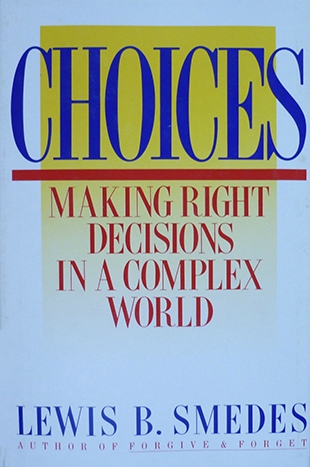"Morality is user-friendly, humane, a signal pointing us to what is best for our true selves," writes Lewis B. Smedes, professor of theology and ethics at Fuller Theological Seminary. In a world that seems dangerously divided between zealots with an unswerving sense of right and wrong and amoralists who insist on a value-free perception of reality, the author adopts a more subtle, sound, and salutary approach to morality.
Using illustrative material from his own life and the ethical quandaries of others, Smedes writes convincingly about the process of decision-making in a complex world. How do we go about doing the right thing? Treating people fairly and lovingly is essential. When we make decisions affecting others, it is important to get all the facts and to weigh them carefully.
Making right decisions also requires respecting rules and calculating the consequences of our actions. Smedes defines responsible decisions as ones which are informed by discernment, imagination, commitment, and accountability. In the closing chapters, he outlines a few alternate paths to moral decision-making, including intuition, prayer, tradition, and inspiring individuals.
We do make mistakes, but this is to be expected. Smedes concludes: "After all is said and done, being right is not the most important thing in the world. Being forgiven is." Whether assessing rules, bad choices, or the actions of Lone Rangers, Smedes is right on target.
